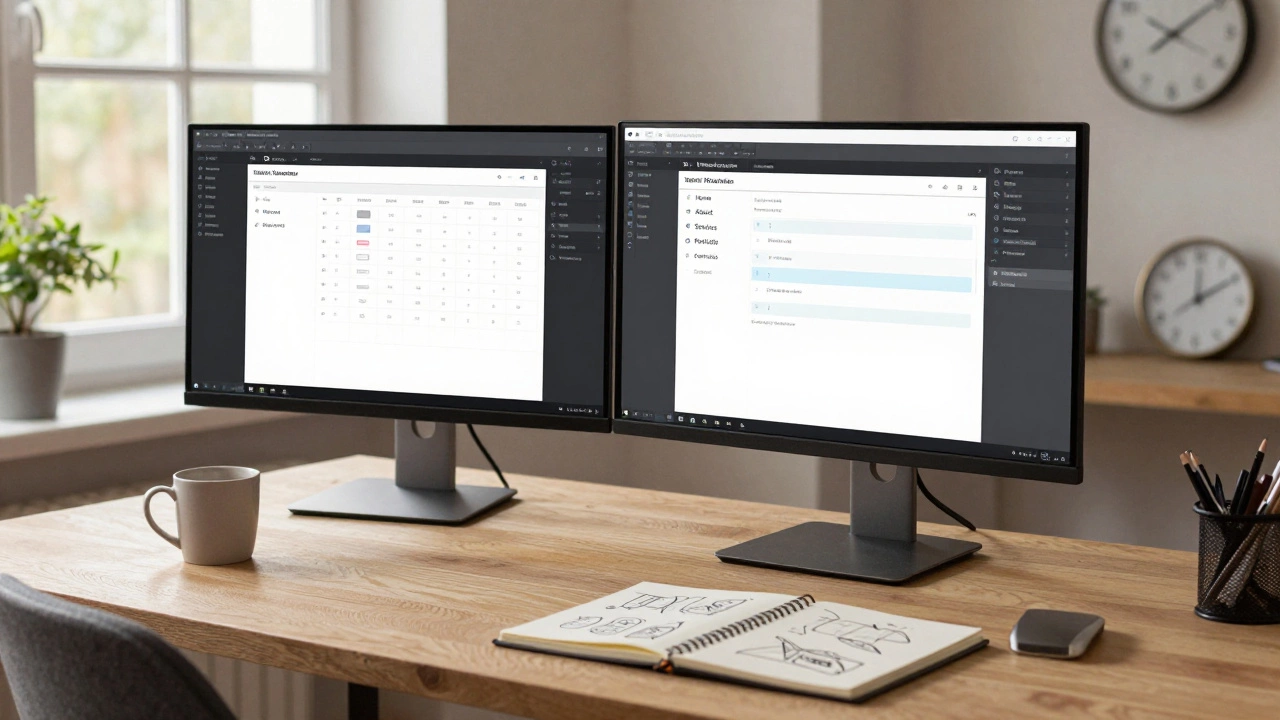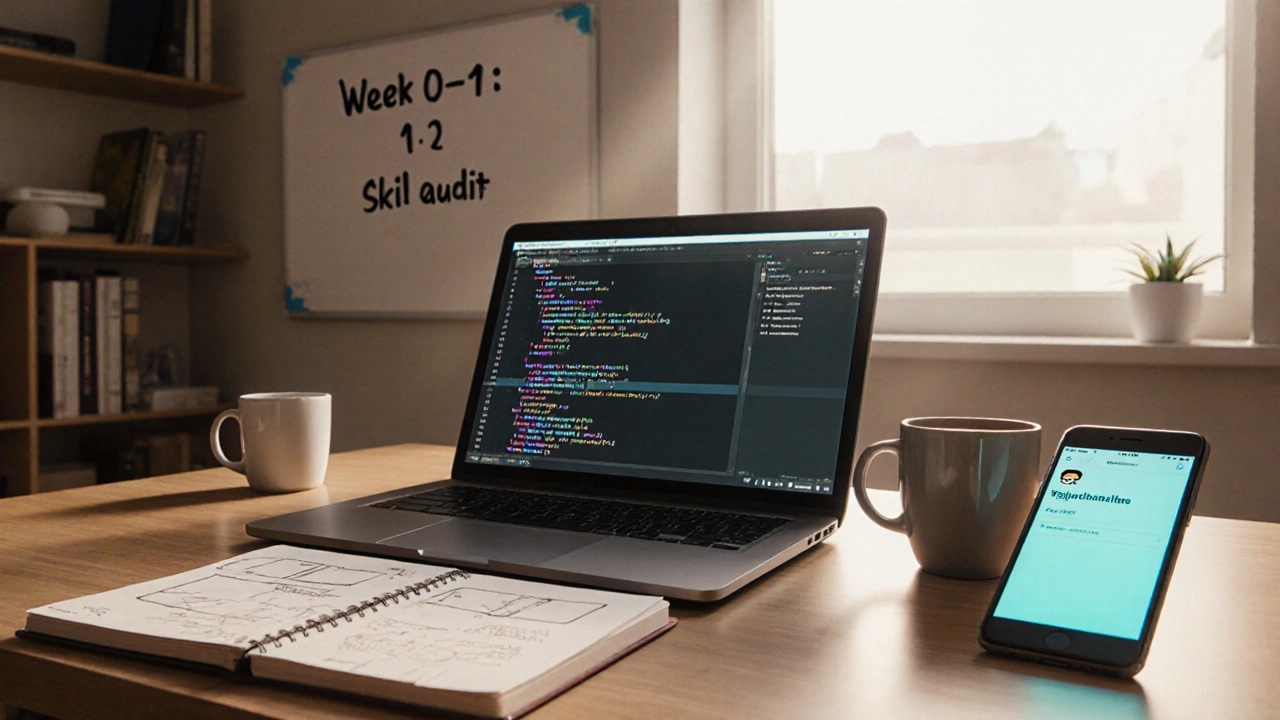If you’re thinking about hiring a freelance web developer or going freelance yourself, the first question is always: how long does it really take? The answer isn’t a one‑size‑fits‑all number, but you can break it down into clear steps and avoid common time‑wasters.
Simple landing pages often finish in 10‑15 hours of work. Add a custom design, a few forms, and you’re looking at 25‑30 hours. E‑commerce sites with product catalogs, payment gateways and SEO basics push the total to 60‑80 hours. The biggest delays usually come from unclear requirements, endless revisions, or waiting for client content.
Pro freelancers tackle this by setting milestones. They deliver a wireframe first, get quick approval, then move to design and finally development. Each stage has a fixed hour budget, so both sides know what to expect. When you plan this way, you reduce surprise costs and keep the project on track.
Yes, the demand is high. Companies of all sizes need a web presence, but they often lack internal dev teams. Freelancers fill that gap with flexibility and specialized skills. Trends like custom e‑commerce, progressive web apps, and mobile‑first design keep the market hungry for fresh talent.
To stay competitive, freelancers should showcase recent projects, highlight niche expertise (like Shopify or WordPress), and keep their rates transparent. Clients appreciate a clear portfolio and a simple quote that matches the scope.
Another hot topic is AI. Tools that generate code snippets or design suggestions are getting better, but they don’t replace a developer’s judgment. Instead, AI can speed up routine tasks, letting freelancers focus on strategy and creativity.
For example, an AI assistant can draft a basic HTML page in seconds. The developer then tweaks the layout, adds custom CSS, and ensures accessibility. This partnership saves hours without sacrificing quality.
Work schedules also differ from the classic 9‑to‑5. Freelancers often juggle multiple clients, so you’ll see flexible hours, night‑time debugging sessions, and weekend sprints. The key is clear communication: let clients know when you’ll be online and set realistic delivery dates.
When you hire a freelancer, ask for a detailed breakdown of tasks and estimated hours. A transparent estimate helps you compare quotes and choose the right partner. It also makes it easier to track progress and control the budget.
In short, freelance web development offers fast turnarounds, specialized expertise, and the ability to adapt to new tech like AI. By understanding typical timelines, market demand, and the value of clear milestones, you can make smarter hiring decisions or build a thriving freelance career.

Yes, you can get a web developer job without experience-if you know how to prove your skills. Real stories from Leeds show how building real projects, not just courses, lands jobs fast.
Read More
How long does it take a freelance web developer to build a website? From simple brochures to full e-commerce stores, timelines vary widely based on complexity, planning, and communication. Learn realistic timeframes and how to avoid delays.
Read More
Yes, you can work remotely as a web developer. Learn the skills needed, where to find jobs, how to prove you're reliable, and what to expect in pay and lifestyle-no degree required.
Read More
Learn the realistic timeline to earn money as a freelance web developer, from building a portfolio to landing the first paid client and scaling income.
Read More
Discover realistic earnings, pricing models, client‑hunting tips, and tax tricks to turn freelance web development into a sustainable career.
Read More
Learn 2025 freelance web developer rates, how hourly, project and retainer pricing work, and get practical tips to hire within your budget.
Read More
Ever wondered how long it really takes to build a website? This article breaks it all down, from simple landing pages to complex online stores. Get practical estimates, discover common time-wasters, and learn tips to avoid going over budget. Find out what actually affects your project timeline and how pro freelancers plan ahead. Perfect if you want no-nonsense answers about website build hours.
Read More
When you're setting out to build a website, the time it takes can vary widely based on several factors. These include the complexity of the design, the specific features you want, and whether you're doing it yourself or hiring a pro. Discover how different approaches affect the timeline and some handy tips to speed up the process. Keep expectations realistic to set the stage for success.
Read More
Freelance web developers continue to be in high demand as businesses prioritize online presence amid growing digital trends. With the need for custom websites and e-commerce solutions, many companies prefer hiring freelancers for their flexibility and expertise. This article explores why freelance web developers are sought after, factors driving demand, and offers tips for freelancers to capitalize on this trend. Whether you're considering a freelance career or expanding your client base, understanding market needs is crucial.
Read More
The integration of artificial intelligence into various sectors has left many speculating about the future roles of professionals, including freelance web developers. As AI evolves, it becomes imperative to explore its potential to substitute programmers in the coming years. This article delves into current functionalities of AI in the coding world, its limitations, and how web developers can adapt to the changing landscape. By understanding the current trends, developers can prepare for a future where AI might assist rather than wholly replace their skills.
Read More
Web developers often face varied work schedules, balancing between full-time roles and freelance projects. Their work hours can swing from the steadfast 40-hour week to more dynamic and flexible schedules. Factors like project deadlines, client needs, and personal work style play a significant role in shaping their weekly workload. Understanding these nuances is crucial for those venturing into the web development world.
Read More